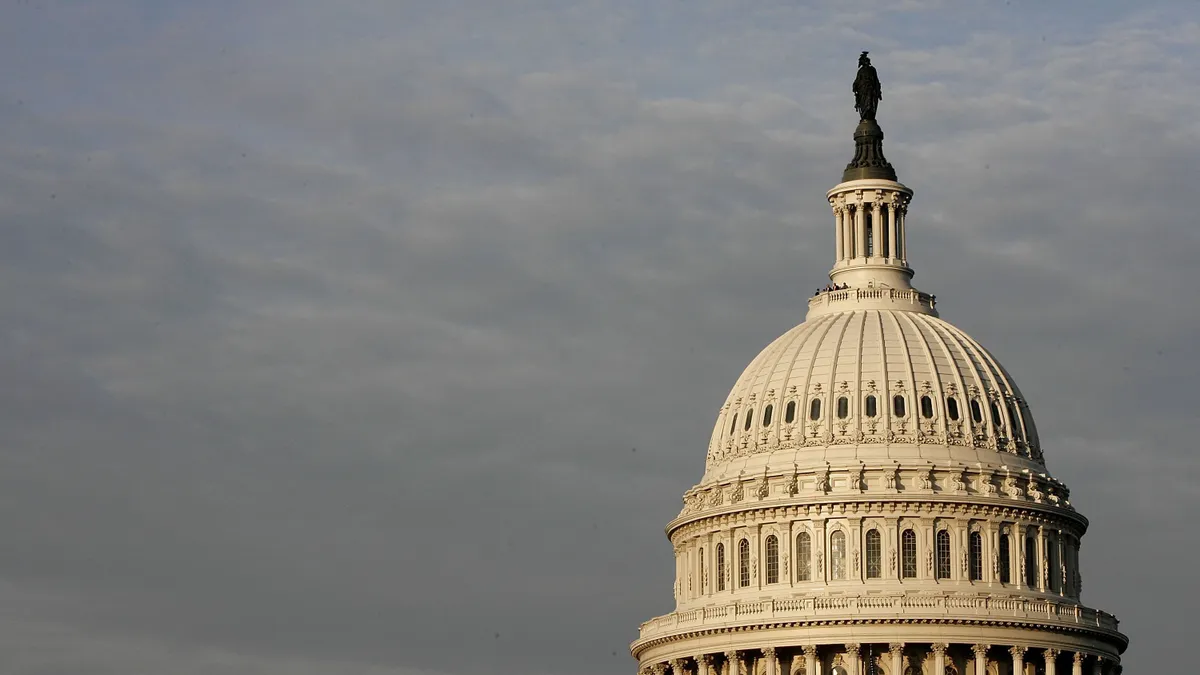During a House subcommittee hearing Thursday, lawmakers discussed how to balance enacting effective recycling solutions with protecting business interests and supply chains.
The Subcommittee on Environment and Climate Change members discussed four bills that represent varied approaches to tackling longtime recycling hurdles, saying there is “no time to waste” on reducing litter and boosting recycling rates. Infrastructure improvements, data collection, access to recycling in rural or low-income areas and efforts to reduce some plastic production and use are among the strategies they addressed.
“Ultimately, no single policy or program will fix our recycling system. It is going to take many complementary efforts,” said subcommittee Chair Paul Tonko, D-N.Y.
Members of the subcommittee, which is part of the House Energy and Commerce committee, agreed the country needs resources to improve recycling systems, but they had different views on how each of the four bills — The Recycling and Composting Accountability Act, Recycling Infrastructure and Accessibility Act, CLEAN Future Act and Break Free From Plastic Pollution Act — would achieve such goals.
Several Republicans on the committee, including ranking member Cathy McMorris Rodgers, R-Wash., voiced skepticism or opposition to measures that would ban plastics production, saying that doing so could hurt plastics-related jobs and impact production of plastics meant for medical use.
One such measure in both the Democratic-led CLEAN Future Act and the Break Free From Plastic Pollution Act calls for a temporary pause on issuing permits for new plastics production facilities and chemical recycling plants to study potential environmental impacts. The bills would also expand the environmental justice requirements facilities must meet when they are able to secure permits. House Energy and Commerce Committee Chair Frank Pallone Jr., D-N.J., sponsors the CLEAN Future Act.
Plastics Industry Association CEO Matt Seaholm told the subcommittee during his testimony that such policies could force plastics production to other countries “with less stringent environmental regulations” while raising costs in the U.S.
Yvette Arellano, founder and executive director of environmental justice group Fenceline Watch, said that bill takes steps crucial to protecting communities that have been disproportionately affected by plastic pollution, including their home in Houston. Arellano described how living in close proximity to petrochemical plants and refineries puts neighborhoods, including lower-income Hispanic communities, at higher risk for serious illnesses such as cancer. “The most vulnerable are left to shoulder these human health costs,” they said.
The subcommittee members applauded provisions in two bills that already have bipartisan support: the Recycling Infrastructure and Accessibility Act, which would offer grants for infrastructure projects in rural or underserved areas, and the Recycling and Composting Accountability Act, which calls for better recycling and waste-related data collection.
David Allaway, senior policy analyst for Oregon’s Department of Environmental Quality, touted his state’s detailed recycling data collection process as a way to avoid “false solutions” and said the Recycling and Composting Accountability Act could help the country do the same at a national scale. Data collection is a critical way of “evaluating and recognizing both the potential of existing programs, and the potential costs and benefits of a variety of different potential policy solutions,” he said.
For more updates on federal recycling bills, visit Waste Dive’s bill tracker.










